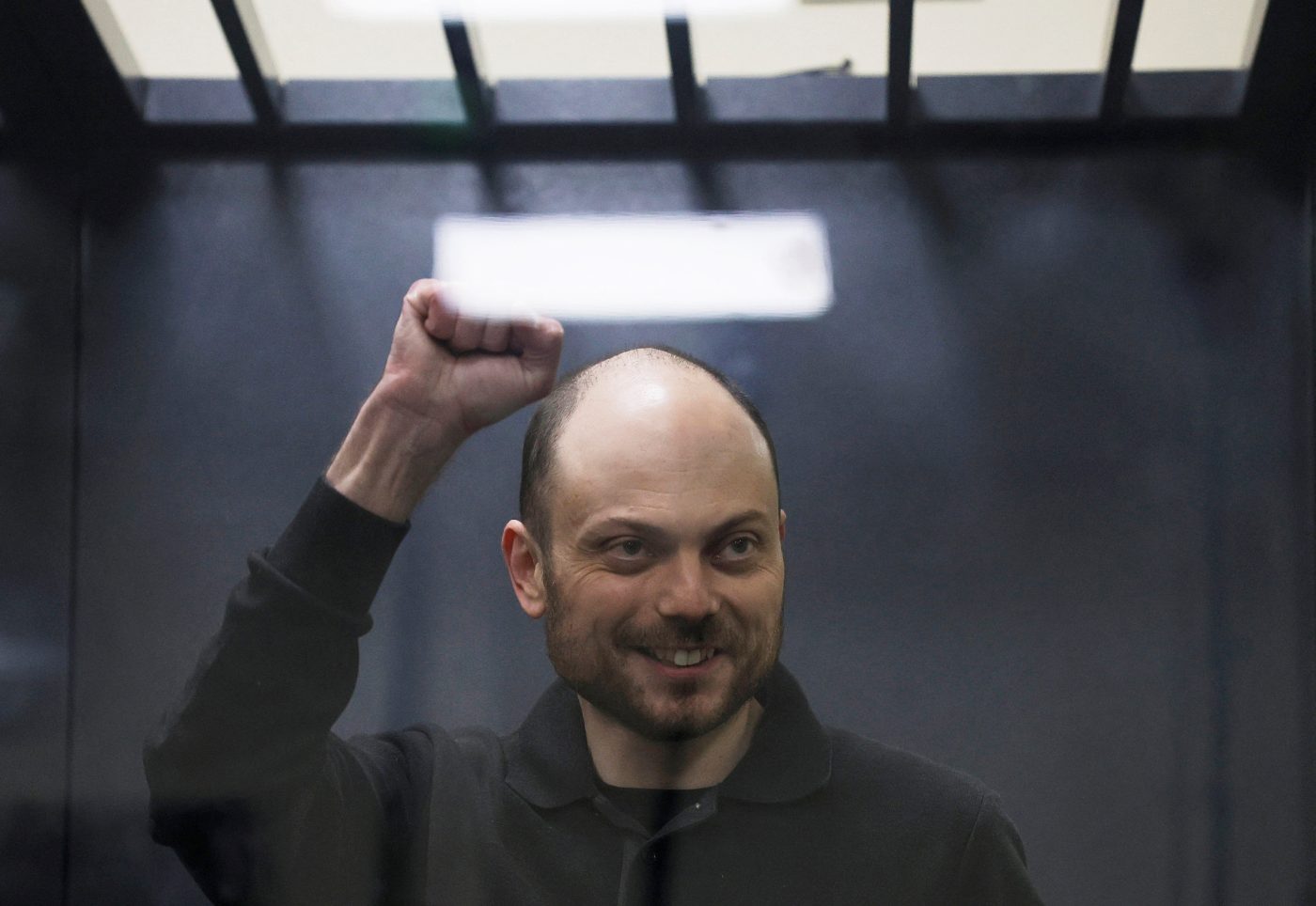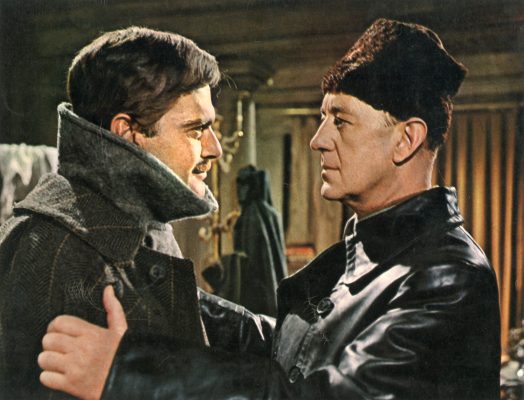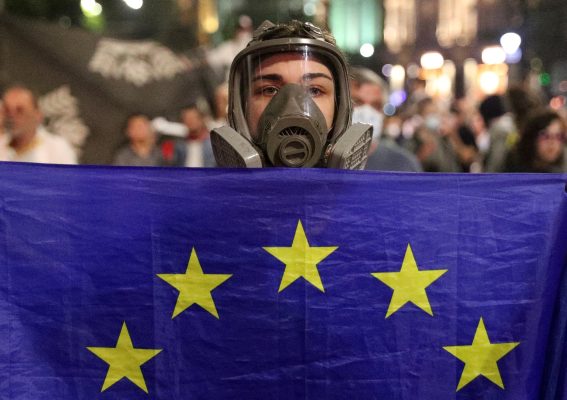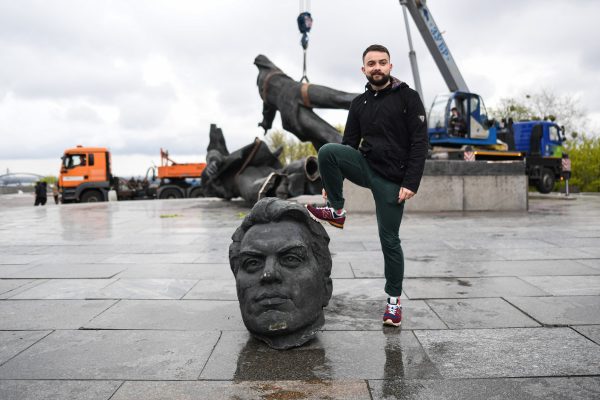A prominent historian, journalist, and opposition politician, Kara-Murza’s persecution stands out among the tens of thousands of politically motivated cases in Russia.
Measured in his style and tone, Kara-Murza continued to speak out against the regime regardless of the increasingly punitive measures introduced after the all-out war began and despite the clear risk that a corrupted legal system would jail him.
Sentenced to 25 years for treason and related charges — the longest term ever handed down to a political prisoner in Russia — he has been held in increasingly inhumane conditions. Less than a month before Navalny’s death at the hands of the regime, Kara-Murza was moved to a Siberian solitary confinement block of about 6 square meters (65 sq ft.).
Kara-Murza’s family are understandably worried. “He’s being held by basically the same people who tried to kill him twice in the past,” his wife Evgenia said on March 25. A joint investigation by Bellingcat and The Insider produced extensive evidence that regime secret police officers twice poisoned Kara-Murza, in 2015 and 2017.
Why does the regime hate him so much?
The answer is as simple as it is telling about Kara-Murza’s beliefs and accomplishments. As a Russian opposition politician, he has been the most persistent and principled advocate of regime accountability.
Rooted in Moscow’s dissident aristocracy, Kara-Murza, now 42, played a leading role in the adoption of the 2012 Magnitsky Act, a historic US law that spawned imitations across the democratic world and that allowed for personal sanctions against officials in Russia and elsewhere who were implicated in human rights abuses.
Kara-Murza also spoke about Russia’s aggression against Ukraine and war crimes committed by the Russian armed forces, and criticized the West’s long-standing policy of appeasement toward the Putin regime that has enabled it to commit abuses with impunity.
Most importantly, Kara-Murza consistently emphasized the link between current-day crimes by the Russian state and the lack of accountability for Soviet-era abuses.
In his keynote speech at the 2021 Sakharov Freedom Award ceremony in Oslo that would later become part of the treason indictment, Kara-Murza spoke of “the grave mistake” of Russia’s short-lived democratic government of the 1990s that failed to craft a comprehensive transitional justice agenda.
He lamented that the reformers had been unable or perhaps unwilling to implement “a process of full decommunization and lustration, of opening the archives, disbanding the old security services, condemning the crimes of the former regime, and making it impossible for their perpetrators to ever return to positions of power.”
Impunity for Soviet-era crimes bred repression in Putin’s Russia. The FSB, Russia’s omnipotent security service, considers itself a proud heir to the communist KGB and its predecessor secret police agencies. As a KGB officer, Putin himself participated in the persecution of dissidents in the 1970s and 1980s. Russia’s oppressive system of governance has remained the same throughout most of the past century, and it is no surprise that it views Kara-Murza’s ideas and pursuits as an existential threat.
In a way, Kara-Murza’s fate is emblematic of the country’s path. The supposed crimes he was convicted of in 2022, such as “spreading falsehoods about the Russian armed forces”, closely resemble those for which Soviet dissidents were sent to the Gulag, such as “anti-Soviet propaganda.”
The presiding judge in the Kara-Murza trial was the same man who had authorized Sergey Magnitsky’s pre-trial detention in 2008 and 2009 before his murder, and would later become one of the first to be sanctioned under the Magnitsky Act. In Kara-Murza’s criminal case, we see both the institutional reproduction of persecution and the personal revenge of its perpetrators.
Yet, a draconian prison sentence is no longer the worst that can happen to a government critic in Russia. With the murder of Navalny, the regime demonstrates that it is now willing to kill political prisoners. While Kara-Murza has survived the two near-fatal poisonings, he has never fully recovered, and doctors said he would not survive another attempt. In essence, Kara-Murza is now on Putin’s death row.
In stark contrast to his dire personal situation, Kara-Murza remains hopeful about Russia’s future, a rare sentiment among Russian liberals today.
At the end of his trial, he said: “I… know that the day will come when the darkness over our country will dissipate… and then our society will open its eyes and be horrified by what terrible crimes were committed on its behalf. From this realization, from this reflection, the long, difficult but vital path toward the recovery and restoration of Russia, its return to the community of civilized countries, will begin”.
If Kara-Murza is keeping the flame of hope alive in his prison cell, we can do no less. The US and its allies should focus on additional measures to impose in the event of his demise and communicate these to the Kremlin.
It is vital for Russia that a man of this extraordinary caliber survives to see the day when he can lead the reckoning with the country’s terrible past.
Grigory Vaypan is a fellow with the Democracy Fellowship program at the Center for European Policy Analysis (CEPA.) He is a Russian human rights attorney and scholar, and is a Senior Lawyer at Memorial, Russia’s oldest human rights group, and laureate of the 2022 Nobel Peace Prize. Most recently, he has been involved in the legal defense of Russian citizens prosecuted for protesting against Russia’s war in Ukraine.
Europe’s Edge is CEPA’s online journal covering critical topics on the foreign policy docket across Europe and North America. All opinions are those of the author and do not necessarily represent the position or views of the institutions they represent or the Center for European Policy Analysis.





